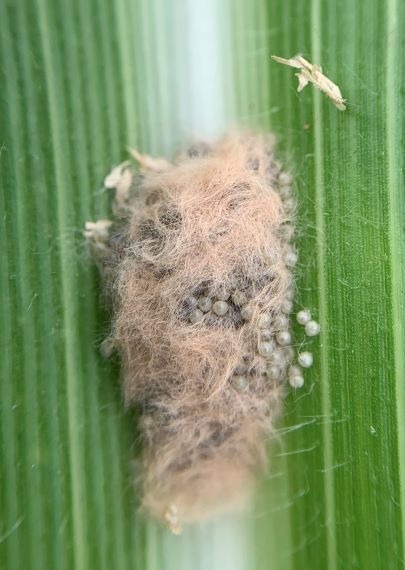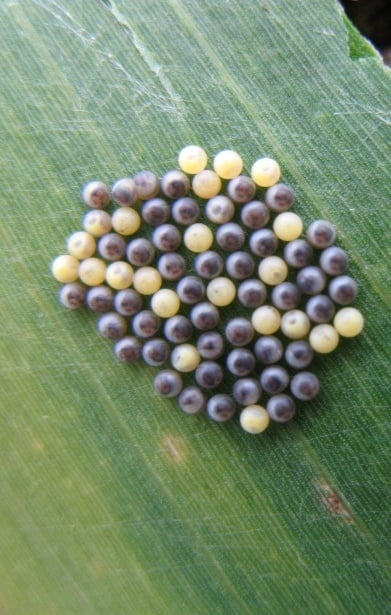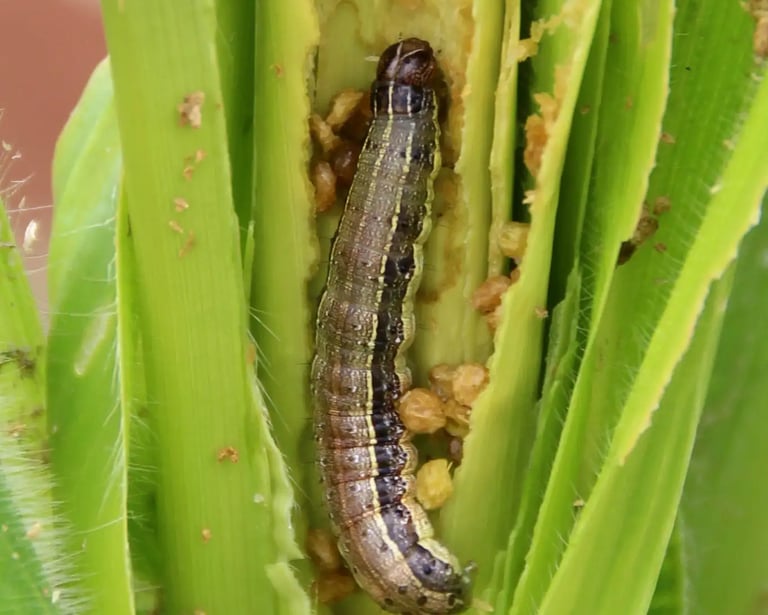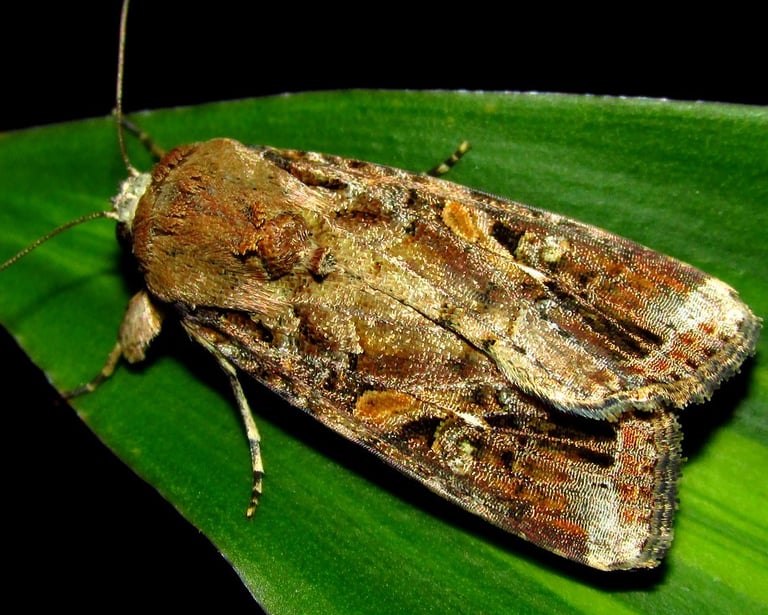FALL ARMY WORM, Spodoptera frugiperda (J. E. Smith) (Lepidoptera: Noctuidae): Insecticide resistance status
The fall armyworm is a highly polyphagous migratory lepidopteran pest species. It can colonize over 80 different plant species including many grasses, and crops such as alfalfa, soybean, sorghum, and corn. The fall armyworm of corn is capable of causing a 100% yield loss due to its unforeseen occurrence from the seedling to the cob formation stage.
The fall armyworm is a highly polyphagous migratory lepidopteran pest species. It can colonize over 80 different plant species including many grasses, and crops such as alfalfa, soybean, sorghum, and corn. The fall armyworm of corn is capable of causing a 100% yield loss due to its unforeseen occurrence from the seedling to the cob formation stage.
The fall armyworm is native to the tropical regions of the western hemisphere from the United States to Argentina. Now, it is reported that its expanded is range across Mediterranean coastal areas of Southern Europe, most of the African continent, Indian sub-continent, South East Asia and Oceania.
Fall armyworm caterpillars are directly preyed upon by many invertebrates and vertebrates.Common predators include birds, rodents, beetles, earwigs, and other insects. It has been shown that direct predation can cause significant losses to caterpillar populations. The larva's main defence against enemies is their ability to reach large numbers and migrate before seasonal conditions are suitable for predators.
Insecticides and genetically modified Bt crops are the main tools for control of the fall armyworm, Spodoptera frugiperda (J.E. Smith). Since its invasion of Africa, the Far East, and Australia where Bt crops are largely absent, insecticide use has increased and reduced susceptibility to several insecticides used for decades in its native distribution area have been reported. Because of the fall armyworms' great destructive power, farmers must go to great lengths to deter the larvae. Insecticide is a widely used form of protection; in order to protect crop, farmers may have to apply insecticide to corn every day.
A strain of the fall armyworm, Spodoptera frugiperda (J. E. Smith), collected from corn in North Florida showed resistance to commonly used insecticides. Resistance to pyrethroids (permethrin, cypermethrin, cyhalothrin, fenvalerate, tralomethrin, bifenthrin, tetramethrin, and fluvalinate) ranged from 2- to 216fold; the highest resistance level observed was to fluvalinate. Resistance to organophosphorus insecticides (chlorpyrifos, methyl parathion, diazinon, sulprofos, dichlorvos, and malathion) ranged from 12- to 271-fold; the highest resistance level observed was to methyl parathion. Resistance to carbamates (methomyl, carbaryl, and thiodicarb) ranged from 14 to >192-fold with the highest resistance level being observed with carbaryl. (S. J. Yu, Pesticide Biochemistry and Physiology 39, 84-91, 1991)
The Arthropod Pesticide Resistance Database, currently reports 204 cases of insecticide resistance in S. frugiperda globally. Of these different active substances, 32% of the cases are Cry proteins expressed in Bt crops.
S. frugiperda population in Puerto Rico was found to have resistance against flubendiamide, chlorantraniliprole, methomyl, thiodicarb, permethrin, chlorpyriphos, zeta-cypermethrin, deltamethrin, triflumuron and spinetoram (Gutiérrez-Moreno et al. 2019).
In Brazil, FAW has evolved field-relevant resistance to the Cry1F protein expressed in Herculex maize and to the Cry1Ab protein in MON810 maize. This species has also developed resistance to Cry1F maize in Puerto Rico and in some areas of the southeastern United States. (Renato J. Horikoshi, Daniel Bernardi, Oderlei Bernardi, José B. Malaquias, Daniela M. Okuma, Leonardo L. Miraldo, Fernando S. de A. e Amaral & Celso Omoto, 2016 – Scientific Reports)
Integrated Pest Management and Control at Field Level
Looking at pesticide resistance status and the failure of multiple pesticide molecules and its compounds to control the population of fall armyworm, a sustainable containment strategy based on integrated pest management is recommended. We at Ai-Genix® developed ground-breaking Ai-enabled crop protection IPM technology BraveHawk®.
During open field trials in corn fields; our BraveHawk® Series Devices have shown quite promising results. The deployment of BraveHawk series devices in the field resulted in keeping the damage to the crop well below the Economic Injury Level (EIL). The actual damage to corn plants and cobs was less than 3%.

















